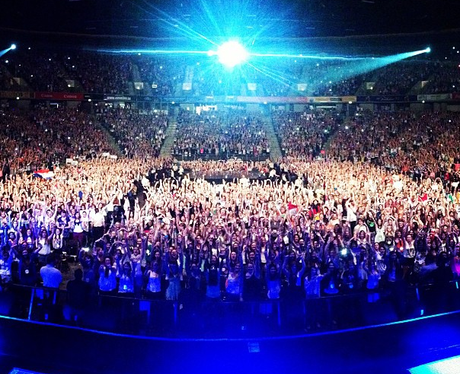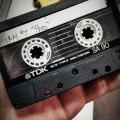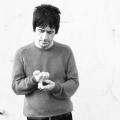I’m going off on a little tangent today. Not pedal related at all. More like personal observation and realization. But I’m hoping a few of you can relate.
 Recently, I played a show and during that performance I was having the conversation that multiple musicians have in their head while playing live. The situation was great, the crowd was awesome, and the gear was working flawlessly. But the stage was a bit weird – or good depending on how you like things. The stage was a very *dead* stage and a bit larger than what I normally play on. Typically, I play in “dive bars” and I say that lovingly. Those dive bars usually have a pretty small stage and limited PA. This performance had a killer monitor and FOH (Front of House) PA. We had a small amount of time to line check and get our monitors dialed in. Individual instruments were sounding good, but as soon as it was time play, I immediately noticed the stage mix on my side was not the greatest. The dead stage made hearing the drums difficult, and since my guitar was on the far end, it sounded insanely loud.
Recently, I played a show and during that performance I was having the conversation that multiple musicians have in their head while playing live. The situation was great, the crowd was awesome, and the gear was working flawlessly. But the stage was a bit weird – or good depending on how you like things. The stage was a very *dead* stage and a bit larger than what I normally play on. Typically, I play in “dive bars” and I say that lovingly. Those dive bars usually have a pretty small stage and limited PA. This performance had a killer monitor and FOH (Front of House) PA. We had a small amount of time to line check and get our monitors dialed in. Individual instruments were sounding good, but as soon as it was time play, I immediately noticed the stage mix on my side was not the greatest. The dead stage made hearing the drums difficult, and since my guitar was on the far end, it sounded insanely loud.
Now in my experience in situations you need to trust but verify. I quickly looked at my settings on my Matchless, and all were where they typically are. I play the same volume for practice as for live shows. A quick glance on the pedals confirmed that levels were good there too. This is all happening during the first song. I could hear the vocals, which I needed for queuing changes, but the other instruments were hard to hear. I knew this would be a lot to ask the sound guy during the set.. and I don’t want to be “that guy” that demands a perfect mix. I played a ton of shows where sound was bad, so this is something you need to manage if you want to play in a variety of venues or go on tour.
The voice inside my head kept saying – “this sounds good out there – just play”. What happens in these situations you feel what you’re hearing in the stage mix is what is pushed out to the Front of House. It’s not. You have to trust the sound guy that it’s good for everyone else. I would much rather have the worst stage mix and it sounding great FOH vs. the best stage mix and sounding horrible to the audience.
Playing live – there are a lot of head games happening. Stay focused. Stay confident. And if you’re sound guy is good, it will be great for the crowd.
Do some of you players know what I’m talking about? Comment below!
-
8 years ago
I know the stage you are talking about. The “deadness” of that space is so effective that it is almost off-putting at first. The great thing about dead spaces is that they are easy to control—maximum tweakability! If levels are so screwed up it affects your performance, then you didn’t take enough time during the sound check. If you just want things to sound like they do in practice they never will. So it’s good to separate out what you need to hear versus what you want to hear. I try to focus on hearing the main instruments/vocals or whatever that I really rely on for cues or for matching pitch, etc. Being “that guy” is hard but if you efficient, it really shouldn’t take long to get your monitor dialed in. Adjust your volume and ask that those key instruments play with you if needed to see if you are in the right range. Use the international hand signals to communicate with sound guy quickly. once you two are communicating: finger up for more volume, thumb down for less. Keep motioning your hand up or down till you have what you need–then give a big OK sign. It all might sound obvious but you really have to be intensely focused during that 30-60 seconds of that line check to make sure you don’t screw up the next 30-90 minutes for yourself (and maybe everyone else!). Can’t hear anyone but yourself? Either turn down (front of house will get you back up to where you need to be in the mix) or redirect your amp off to the side or closer to you so the main beam is hitting you in the legs instead of your ears. If you are committed to the same amp setting regardless of the room (acoustics) you are playing, that will lead to problems.
Reply -
8 years ago
My first real gig (apart from house parties) was in front 2500-3000 people on a large outdoor stage. I remember that exact feeling you described here. The dead emptiness, not hearing the other guitar player at all, I felt I was loud. I was a newbie so I just played on and went along with everything, but in the back of my head I thought we must sound awful, even though we had very experienced, well respected sound man at the wheel. Afterwords, everyone I talked to about it said it sound great. The sound man knew I was stressed about it and he assured me it was good. I also like the smaller clubs and dive bars. You can usually hear everything pretty well.
Reply -
8 years ago
Everything @Gibson said, I agree with. So no need to repeat. But I will emphasize this, before anything is even plugged in or drums are hit, take a moment to observe the room/stage itself. Look at it. Say something to it and hear the echo or lack there or. Have a some sort of recognition of the room/stage you will fill with sound. Know it in its silence first. Then begin tweaking levels…
Reply -
-
8 years ago
OK. Here comes a twist with a little story…with some real world experience describing a transition to Full Range Frequency Response (FRFR) sound and digital modelers.
We love our sound guys…my band doesn’t have it’s own (other than myself for private gigs) but we play several venues where good sound guys and PAs are provided for us. So nice not to have to compensate constantly for spikes and EQ issues. Sound guys love direct XLR/FOH mixes from these things…limited volume spikes and an easy EQ.
I played tube rigs forever…the tone and punch was always completely fantastic, but to hit “tone-nirvana” it would require a bit too much on the master volume dial with 50W tubes. Plus, it was a dual tube amp stereo rig, so it was a heavy pain-in-the-butt to haul around…and had twice the volume to to hit the tone-nirvana in both heads.
I made a switch to a Fractal Axe FXII and MFC-101 midi controller last year to save my ears, back, and cut setup time from 2 hours to 20 minutes. The Fractal Axe is an impressive unit in how it models and projects some classic tube tones. In-Ear monitors with your own mix, and everything could always be good on stage…tube punch and crowd noise is gone, but you get used to it. Got some pre-dialed full-stereo classic tube FRFR patches from Dweezil Zappa himself and thought the tone sounded great for many of the songs my band plays, and got compliments from the crowd here and there to reinforce it. Went straight from the Fractal, XLR to FOH, and had a set of powered speakers on the stage as well to keep something for the close crowd (and myself when I wanted to pull an IEM earplug and ‘feel it’).
We noticed that most of our crowd would hang back from the stage with the different setup – they used to be up and front, but were now back further in the club doing their thing. I wondered if it was too loud…then a couple of our regulars said something was missing…they told me the normal “ear candy” in the first 30-40 feet from the stage was non-existent – they had to move into the direct projection of the mains. Some of these guys are decent guitar players who understood the challenges of a live stage mix. I turned up the powered 15″ FRFR speakers to compensate…they said it was still hollow on the guitar end. They said out in front of the mains it was like they were listening to a CD, but they’d have to stay way out there to enjoy the ear-candy.
So, hollow stage? Poor EQ? Bad digital patches? The sound guy provided a digital recording of a couple songs with the new setup and I must say that the sound was impressive…like a CD. BUT, the up-front crowd and myself didn’t feel the vibe. The digital Fractal patches responded to pick-attack dynamics, breakup…all the good stuff, but the punch and warmth did not project.
I’m moving back to my stereo tube rig. I have a tricked out Fractal Axe FXII setup with a midi-controller and multiple expression pedals that will be hitting the market soon. Send me a message if you’re interested.
Moral of the story. A well-balanced non-FOH, non-PA stage sound is still a core need, both for the band and the crowd. Someone needs to vet the sound of your instrument ensemble 20-30 feet in front of the stage…THEN, let the sound guy identify the needs beyond that. It may seem selfish, but we all play to enjoy the punch of a good tight band as if you were playing without a PA. If that means tilting/turning cabinets, moving from the drummer, or stepping into the middle of the stage to feel the vibe, so be it. But in the end, if the band can’t experience the sonic beauty the members have strived for, then there are frowns on the stage and that ultimately projects to an audience. When a band is having fun, so is the audience.
Reply -
8 years ago
I dunno. Not all sound guys can be trusted. I still remember horrible mixes from many concerts by classic bands I saw in years past. Okay so I’m old and P.A. gear is light years better today than 35 years ago, but just imagine watching Steve Howe up close and anticipating the part where you know there is a mind-bending solo coming up, only to SEE him play it and hear nothing but the bass and drums. I didn’t pay just to watch him play. I also paid to HEAR it!!!
But a lot of it depends on sound guys who have a clue what it is supposed to sound like. I’m skeptical of sound guys who are not musicians themselves. Too many times I’ve played what I thought was a great solo only to have someone afterwards say, “There was a solo in that song?” So it might irritate the heck out of sound guys, but I have no hesitation about hitting a boost pedal to get my solos to cut through. I just don’t trust the sound guys to get it right.
This is especially the case for those of us who play regularly in large churches. You’d think with the amount of money churches invest in getting a first rate sound system and sound board that they’d put someone back there running it who has a clue. Often they do, but just as often its a well intentioned volunteer who wants to serve, but just has no idea how to make a decent mix. How am I supposed to be helping to lead worship while I’m irritated at how bad the sound is?
Reply




